On July 23, 2025, in Beijing, as an NGO in Special Consultative Status with the United Nations Economic and Social Council, Beijing Changier Education Foundation once again hosted an official side event at the United Nations High-Level Political Forum (HLPF) on Sustainable Development. Themed “The 2030 Agenda: Innovation-Driven Inclusive Development,” the forum brought together young representatives and international guests from China, the United States, Africa, Europe, and other regions for in-depth discussions on global issues such as technological innovation, social inclusion, gender equality, and health and well-being.
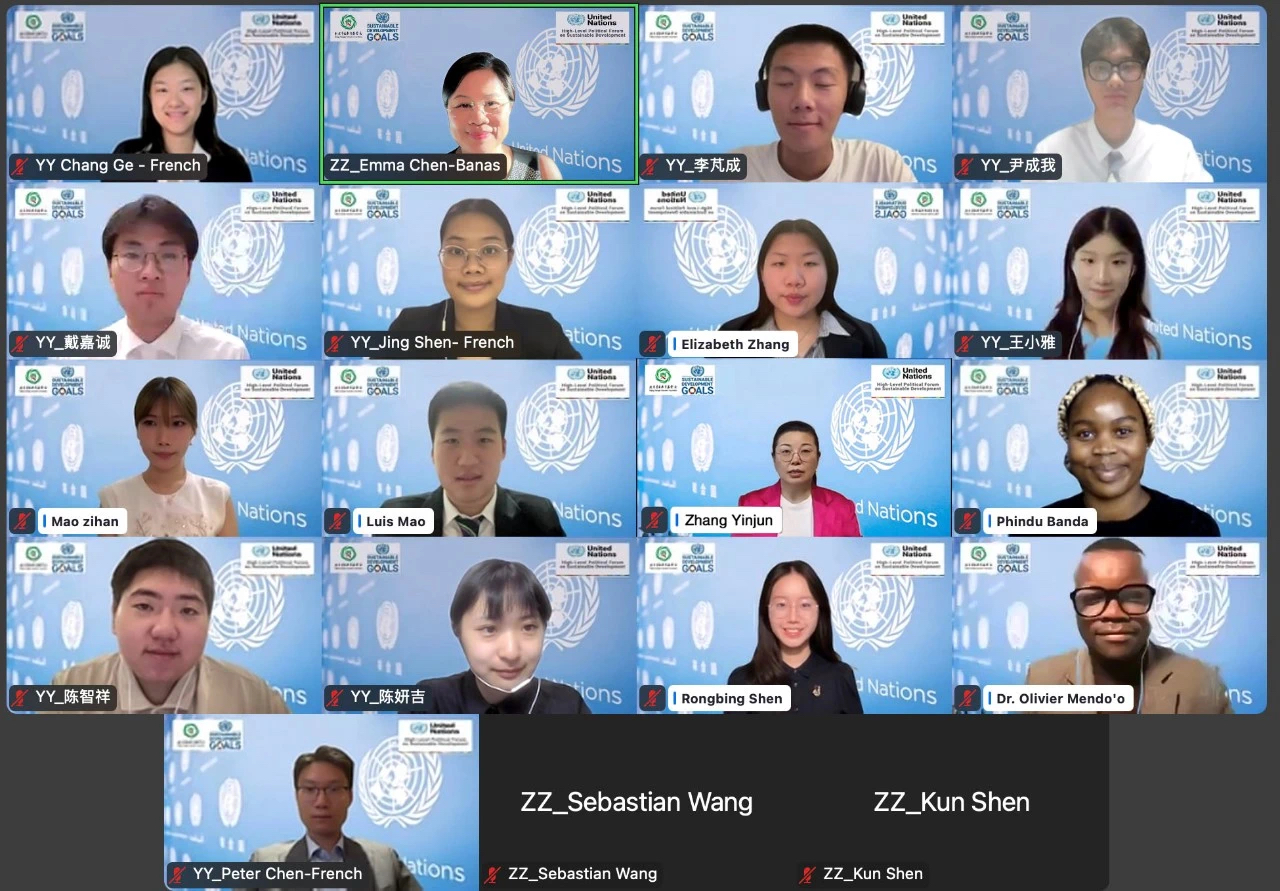 The HLPF is the world’s most important
multilateral platform for sustainable development policy, convening governments,
international organizations, and civil society annually to advance the
implementation of the United Nations 2030 Sustainable Development Goals (SDGs).
The participation and leadership of Beijing Changier Education Foundation fully
demonstrate the innovative practices and youth empowerment of Chinese civil
society organizations in global governance.
The HLPF is the world’s most important
multilateral platform for sustainable development policy, convening governments,
international organizations, and civil society annually to advance the
implementation of the United Nations 2030 Sustainable Development Goals (SDGs).
The participation and leadership of Beijing Changier Education Foundation fully
demonstrate the innovative practices and youth empowerment of Chinese civil
society organizations in global governance.
This year’s event was conducted in Chinese, English, and French, with French simultaneous interpretation introduced for the first time, earning high praise from international guests. In the future, Changier will further expand multilingual channels to enhance its international influence.
Voices from the Forum: Diverse Practices, Shared Responsibility
 Zhang Yinjun (China, Founder/President of China
Youth Love Education Foundation):
Zhang Yinjun (China, Founder/President of China
Youth Love Education Foundation):
Maternal Love as the Foundation for Peace and Sustainability
“Wars, conflicts, and social unrest have inflicted trauma on more than 500 million women and children. Peace is the cornerstone we all pursue.” President Zhang Yinjun began her speech with these words. For over 20 years, she has led the Changier team in promoting youth health, HIV/AIDS prevention, and Maternal love education nationwide, establishing 1,385 “Changier Huts” and 219 Maternal Love Academies, serving over 40 million people. She firmly believes that community resilience and social stability stem from the transmission of Maternal love education and the safeguarding of mental health.
“Maternal love is the most universal and enduring emotional bond of humanity. Our promotion of Maternal love education is not only for family warmth, but also to enhance community cohesion and governance capacity.” President Zhang called on the international community to jointly support the establishment of the “University of Human Maternal Love,” and to promote the Maternal Love Academy model globally, enabling more people to learn care, understanding, and inclusion.
“We believe that Maternal love education can bring hope and strength to young people and families amid turbulence and uncertainty, and contribute Chinese wisdom to achieving a peaceful, inclusive, and sustainable future.”
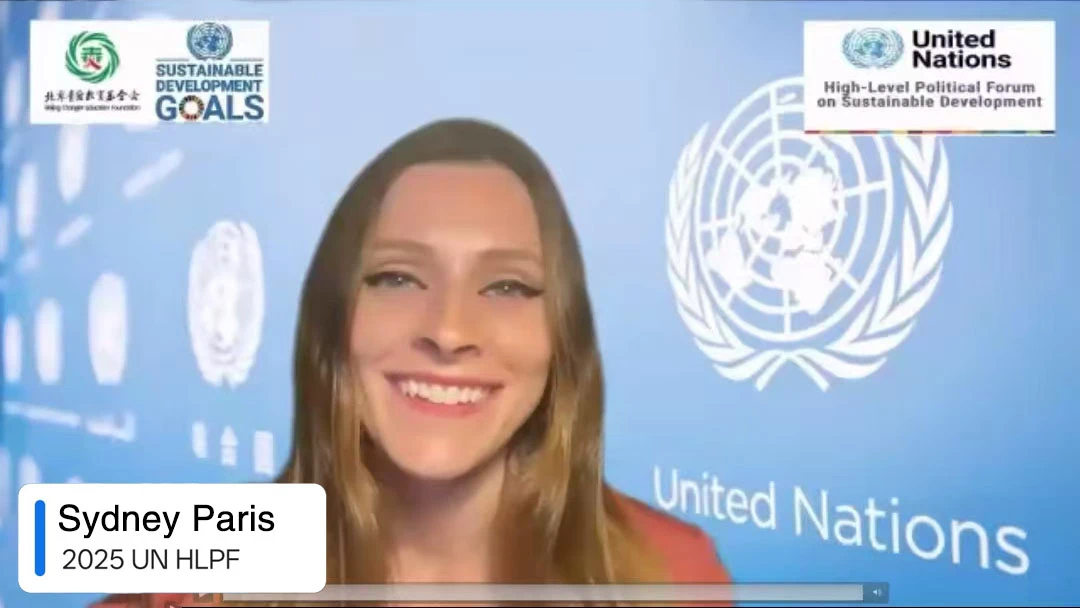 Sydney Paris (USA, Chair of Education &
Career Development, SAVMA):
Sydney Paris (USA, Chair of Education &
Career Development, SAVMA):
Resilience and Inclusion in Adversity: Ensuring Opportunities for Every Youth
Sydney’s story began in a modest family. “I was once homeless, spending night after night in a car with my mother.” She frankly stated that it was social inclusion and educational opportunities that enabled her to eventually attend Cornell University and become a veterinary student and youth leader in SAVMA. Sydney is particularly concerned about the health rights of disadvantaged groups. “In the US, many children still lack access to basic healthcare and education due to poverty. We cannot let one’s background determine their future.” She actively participates in animal rescue and community health projects, encouraging youth to give back through volunteer service.
“I know firsthand that those who lent a helping hand in adversity changed my life. Today, I hope my story inspires more youth to bravely pursue their dreams, and to care for and help those around them. Every youth should be the master of their dreams, not a bystander to fate.”
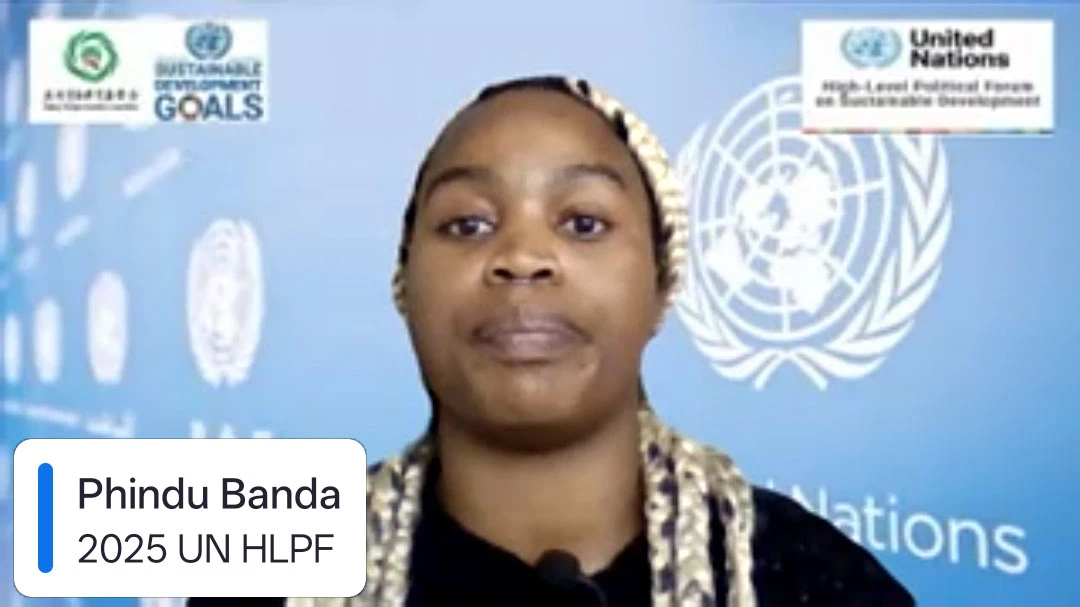 Phindu Banda (Malawi, Feminist & Spoken
Word Poet):
Phindu Banda (Malawi, Feminist & Spoken
Word Poet):
Igniting African Girls’ Dreams with Poetry and Action
“I am a poet and a feminist.” Phindu used poetic language to narrate the growth and struggles of African women. She recalled that as a child in a rural school, girls were always encouraged to be quiet and obedient, not to express themselves. “Our voices have been ignored for too long. Knowledge and expression are the keys to empowering girls.” Phindu promotes female education and empowerment across Malawi and Africa, conducting poetry workshops and leadership training to help girls tell their stories.
“I have witnessed many girls gain confidence through a speech or a poetry recital. We must break the silence and let every girl dare to dream.” She firmly believes that only by truly listening to women’s voices can society achieve inclusion and progress.
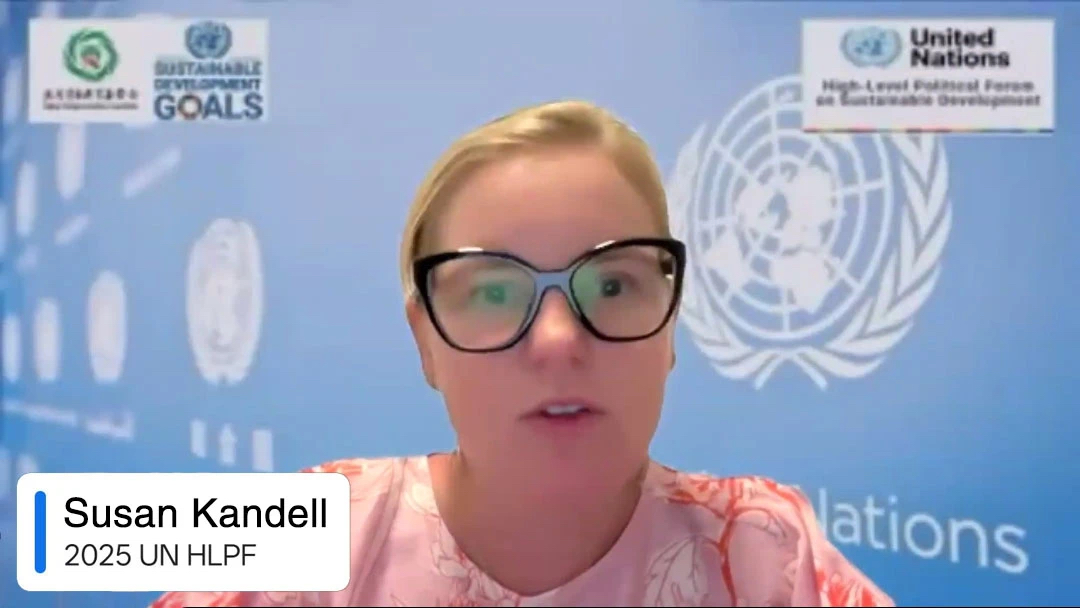 Susan Kandell (UK, UN Gender Affairs
Expert):
Susan Kandell (UK, UN Gender Affairs
Expert):
Gender Equality: The Core Driver of Sustainable Development
Susan, as the head of UN gender equality programs, shared her experience in advancing gender mainstreaming globally. “Gender equality is not a standalone goal, but the core driver for all sustainable development goals.” She promoted gender statistics and policy innovation in places like Botswana, emphasizing the importance of integrating gender perspectives into decision-making and data systems.
“If we ignore the roles and needs of women and girls in society, we cannot achieve true inclusion and sustainability.” Susan also introduced UN gender equality projects in education, health, and economics, calling for greater cooperation among governments and social organizations. “Without gender equality, there is no real sustainable development. Every policy and project should address the actual needs of women and vulnerable groups.”
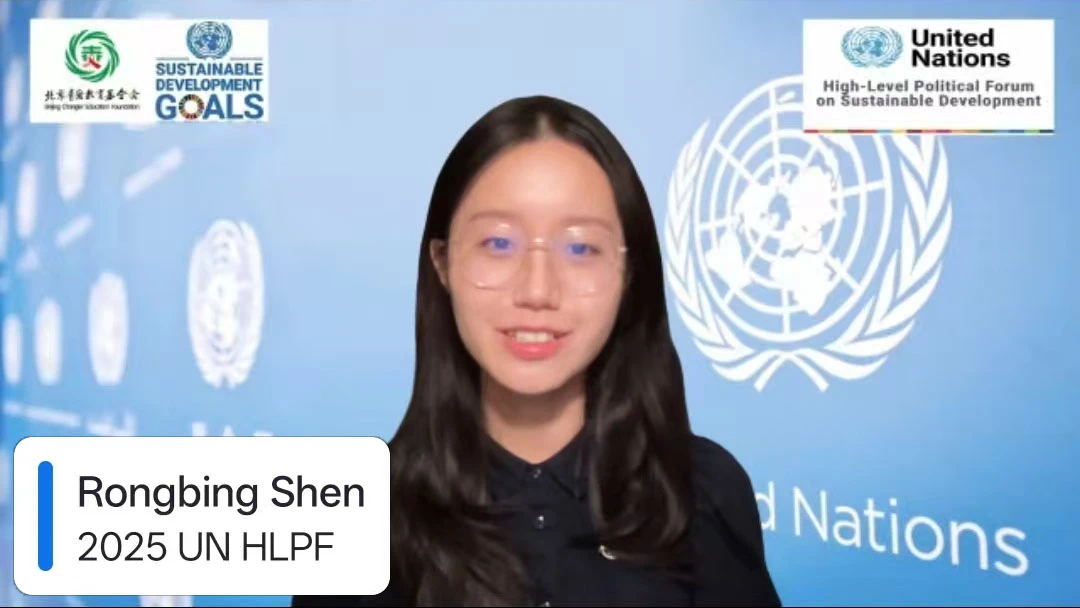 Shen Rongbing (Hong Kong SAR, Music Educator
& Clarinetist):
Shen Rongbing (Hong Kong SAR, Music Educator
& Clarinetist):
The Healing and Connecting Power of Art: Bringing Warmth to a Diverse Society
Rongbing opened with “Art is a bridge of connection,” sharing his exploration in South-South cooperation and art therapy. He recalled the freedom and creativity brought by art classes in childhood. “In art, I learned expression, cooperation, and empathy.” Rongbing promotes art education projects for traumatized youth and marginalized groups in Hong Kong and Southeast Asia, helping them rebuild confidence and connect with society through painting, drama, and music.
“I have seen a child become braver after painting their fears and hopes on canvas.” He emphasized that art not only heals individuals but also serves as a bridge for cross-cultural understanding and social integration. “We must bring art into more communities and schools, so everyone can find their own voice through creation.”
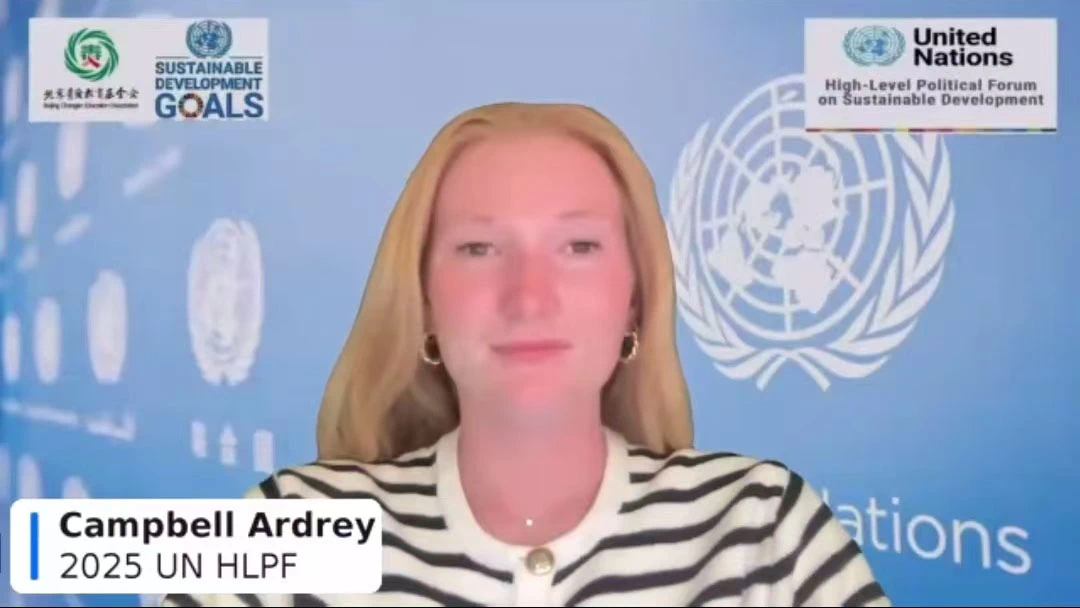 Campbell Ardrey (USA, Student at Deerfield
Academy):
Campbell Ardrey (USA, Student at Deerfield
Academy):
Technological Innovation and Humanistic Care: Making Healthcare Accessible to All
Campbell’s dream began with a first-aid experience at age three. “That moment, I realized for the first time that science and care can save lives.” Now a medical student, he actively participates in medical innovation and community health projects. Campbell shared his stories of providing free clinics in remote areas. “Many people miss timely treatment due to lack of resources. Technological innovation brings new possibilities, but it is more important to make these benefits accessible to everyone.”
He believes that medicine is not just about technological advancement, but also about respect and responsibility for people. “We must let innovation serve everyone, especially the most vulnerable. Only by combining humanistic care and scientific spirit can we achieve sustainable development in health and well-being.”
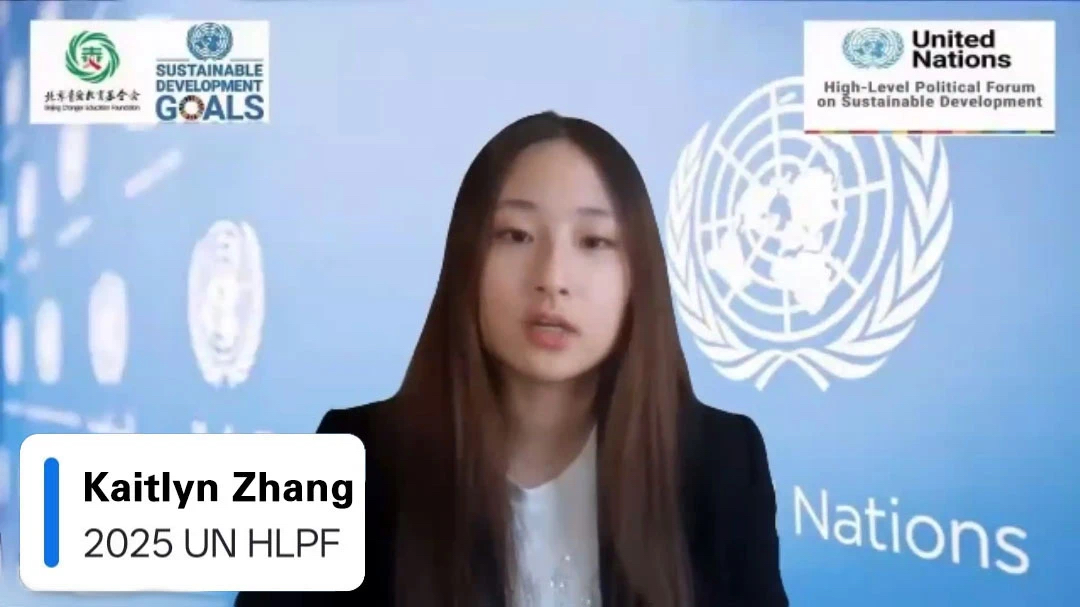 Kaitlyn Zhang (Canada/Chinese, Founder of Girls
LEAD & Member of FIRST Robotics Youth Council):
Kaitlyn Zhang (Canada/Chinese, Founder of Girls
LEAD & Member of FIRST Robotics Youth Council):
AI & Mental Health: Dual Safeguards of Technology and Humanity
Kaitlyn began with a warm childhood memory: “When I was little, my mother took me to the market to buy watermelons. She taught me to tap and listen, to feel the sound and weight.” This life wisdom inspired her reflections on artificial and native intelligence. “AI is reshaping our learning and lives, but human emotions and intuition are irreplaceable.” Kaitlyn founded Girls LEAD, focusing on youth mental health and tech ethics. She shared cases of using AI to assist mental health services, while reminding, “Technology cannot replace humanity. We should make AI a helper for youth growth, not a source of stress.”
She calls on society to pay attention to humanistic care in technological development, providing a safe, healthy, and inclusive environment for youth.
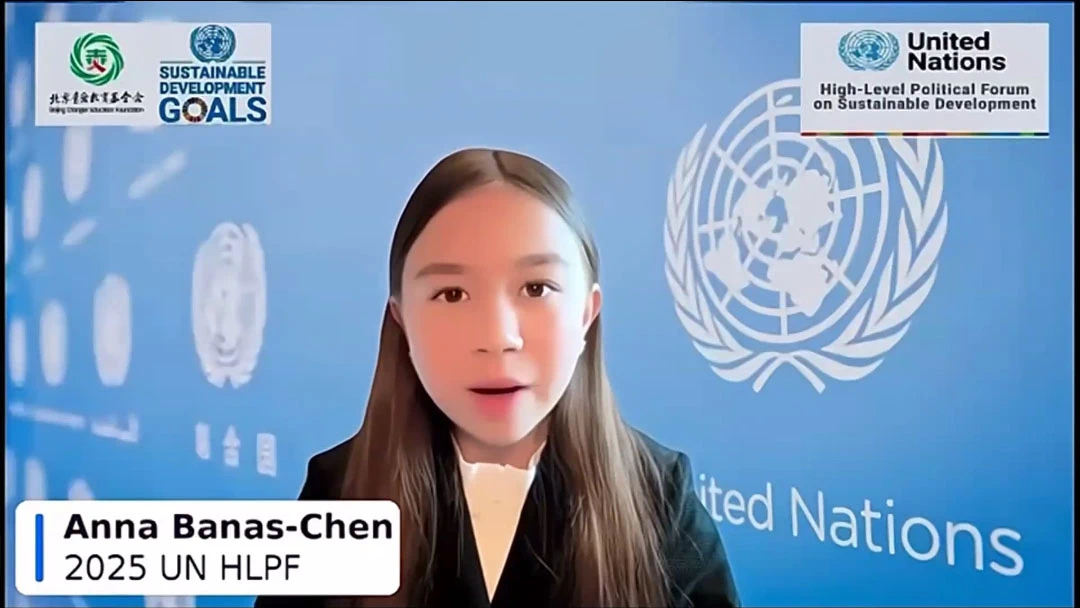 Anna Banas-Chen (USA, Children’s Book Author
& Young Entrepreneur):
Anna Banas-Chen (USA, Children’s Book Author
& Young Entrepreneur):
Early Practice and Empathy: Making Education and Care Barrier-Free
Anna, the youngest guest at just 12, began with a story of rescuing a stray kitten. “The kitten was shivering by the trash can. My friends and I helped it recover with warmth and patience.” This experience strengthened her resolve to pursue veterinary and animal protection. Anna emphasizes that early practice and empathy education are crucial for youth development. “Every rescued life reminds us that education and care should have no barriers.” She promotes equal access to veterinary education and encourages youth to understand the value and responsibility of life through volunteering and social practice. “Only by involving more youth in public service and practice can we cultivate empathetic and responsible global citizens.”
 Wayne Wang (USA/Chinese, Student at Choate
Rosemary Hall):
Wayne Wang (USA/Chinese, Student at Choate
Rosemary Hall):
Food as Medicine: From Personal Change to Public Health Advocacy
Wayne candidly shared his near-death experience from obesity. “At 15, I was overweight and my health was in crisis. Family love and scientific nutrition saved my life.” He thus devoted himself to public health, advocating the concept of “food as medicine.” Wayne launched healthy eating campaigns in schools and communities, helping youth understand the link between nutrition and health. “Nutrition is the cornerstone of public health. A healthy diet can prevent many chronic diseases.” He calls on society to focus on youth nutrition and healthy lifestyles, advancing policy and education reform to make health a right, not a privilege.
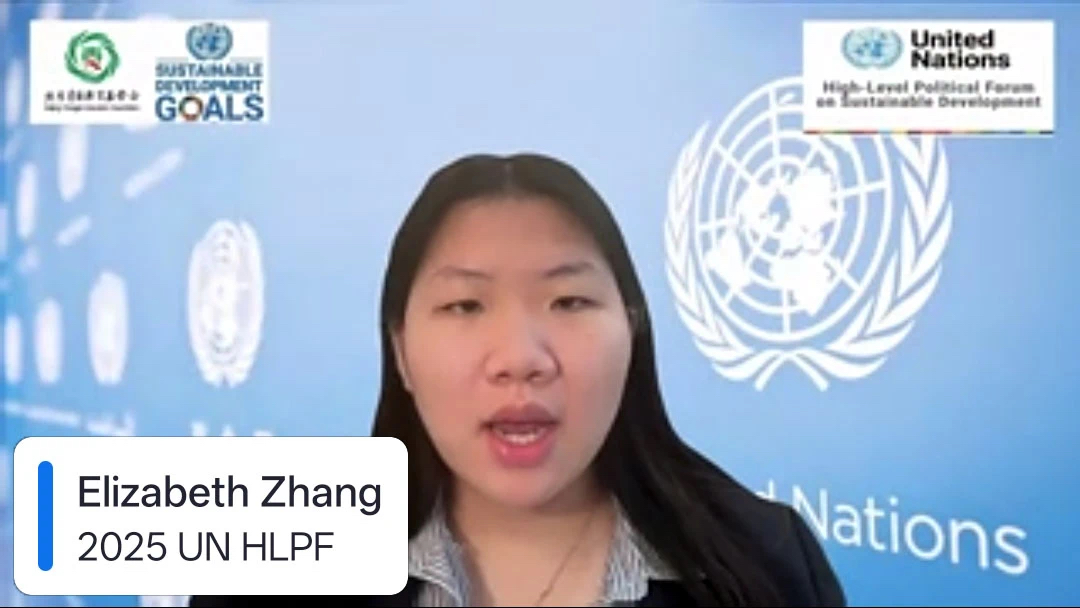 Elizabeth Zhang (USA/Chinese, High School
Student & Award-Winning Writer):
Elizabeth Zhang (USA/Chinese, High School
Student & Award-Winning Writer):
Cross-Cultural Exchange and Educational Equity: Enabling More Youth to Become Global Citizens
Elizabeth began with her experience studying in Italy, illustrating the importance of cross-cultural exchange for personal growth and social progress. “Education is the key to the world. Cultural collisions taught me respect, understanding, and inclusion.” She actively promotes youth exchange and cooperation between China and abroad, advocating for fair distribution of educational resources. “We must give more youth opportunities to see the world, understand diversity, and become responsible global citizens.” Elizabeth also focuses on educational opportunities for disadvantaged groups, calling for fair, high-quality educational resources for every child. “Only educational equity can lay the foundation for sustainable development.”
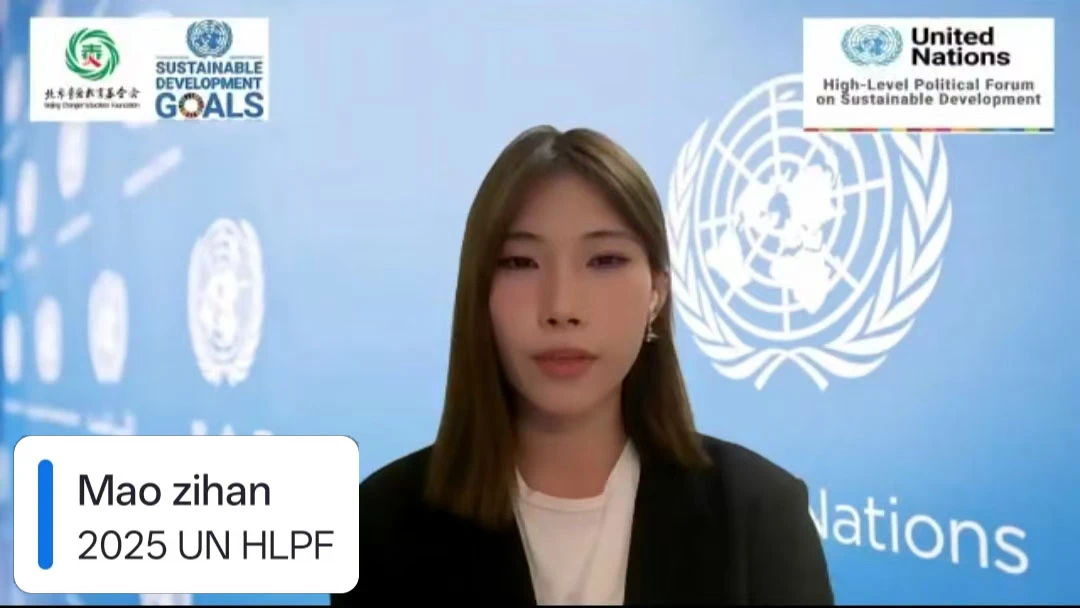 Mao Zihan (China, Master’s Student in National
and Regional Studies, BFSU):
Mao Zihan (China, Master’s Student in National
and Regional Studies, BFSU):
Breaking Prejudice, Pursuing Dreams: The Reality and Hope of Gender Equality
Mao Zihan reflected deeply on gender bias in society through her own academic and personal experiences. “I have been doubted for my abilities because of my gender and have encountered implicit discrimination in my studies and career.” She emphasized that gender equality is a right, not a privilege. “Everyone should have the right to pursue their dreams, regardless of gender.” Mao Zihan actively participates in gender equality advocacy and social research, promoting women’s rights and changing social perceptions. “We must eliminate prejudice and ensure everyone is treated fairly. Only by achieving true gender equality can society become more inclusive and progressive.”
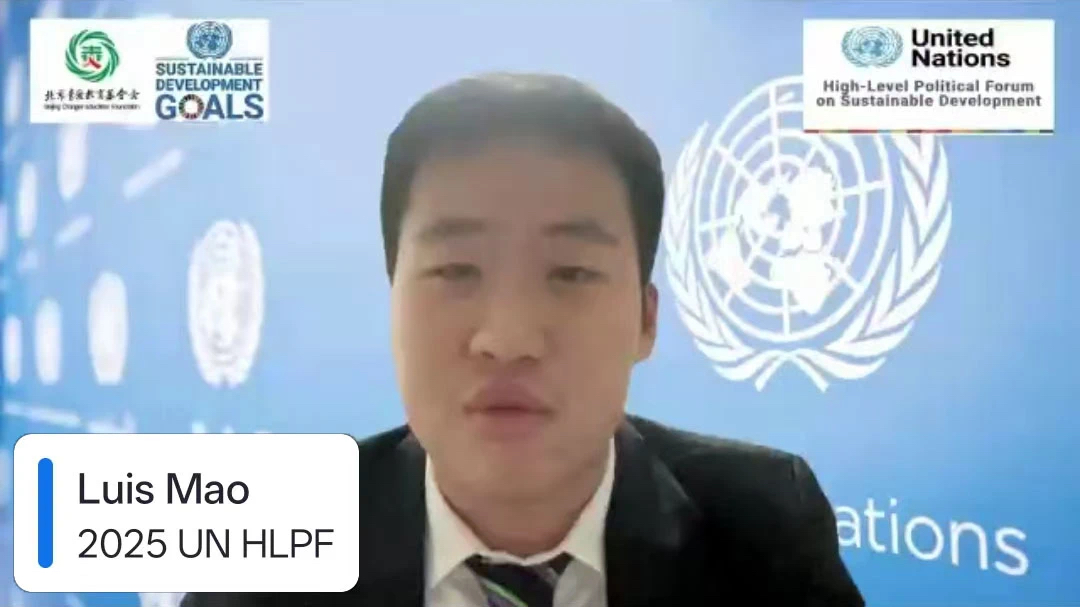 Mao Ziyong (USA/Chinese, Founder of PAONUTRIO
Student Project):
Mao Ziyong (USA/Chinese, Founder of PAONUTRIO
Student Project):
Safeguarding Mental Health: Giving Every Youth Hope
He recounted stories of classmates falling into psychological distress due to gaming addiction and poor diet. “I witnessed a once cheerful roommate become withdrawn and anxious due to lack of family love and social support.” He stressed the irreplaceable role of social support systems and family care. “We need to create a healthy environment for youth, from schools and families to communities, with multi-sector collaboration and attention to mental health.” He calls on society to strengthen mental health education and services, giving every child hope and a sense of security. “Mental health is the cornerstone of growth and an important guarantee for sustainable development.”
Dialogue and Consensus: Chinese Wisdom in Sustainable Philanthropy
During the Q&A session, Ms. Sydney Paris gave an excellent answer to how students from disadvantaged backgrounds can better engage in international exchange. President Zhang Yinjun then responded to the question “How to ensure the sustainability and social impact of philanthropic projects” with profound insights: “We always regard sustainable development as a strategic core, enhancing project vitality through diverse cooperation, capacity building, and digital empowerment. Changier actively collaborates with governments, UN agencies, enterprises, and community partners, encouraging youth participation and social advocacy. Through continuous evaluation and transparent project management, we ensure every philanthropic action has a far-reaching, positive social impact, contributing Chinese wisdom and strength to achieving the UN 2030 Sustainable Development Goals.”
Responding to the Times with Action, Achieving the Future with Innovation
This side event not only showcased the innovative practices and youth influence of Chinese civil society organizations in global sustainable development governance, but also promoted international exchange and understanding through multilingual platforms. Beijing Changier Education Foundation firmly believes that the power of philanthropy comes from everyone’s sense of responsibility and commitment. We will continue to join hands with global partners to empower youth, promote innovation and inclusion, and let the warmth and wisdom of Chinese philanthropy illuminate more people on the journey toward global sustainable development, contributing even more to the realization of the UN 2030 Sustainable Development Goals.
Special Thanks: The Professional Support of the Simultaneous Interpretation Team
The successful convening of this forum would not have been possible without the hard work and professional support of the simultaneous interpretation team. The China Youth Love Education Foundation would like to express special thanks to Professor Lin Luzhou and students Yin Chengwo, Li Pengcheng, Chen Yanjie, Wang Xiaoya, Chen Zhixiang, and Dai Jiacheng from the Graduate Institute of Regional and Global Governance at Beijing Foreign Studies University for providing English simultaneous interpretation for the conference; as well as to Ge Chang, Shen Jing, and Chen Yansong for providing French simultaneous interpretation.
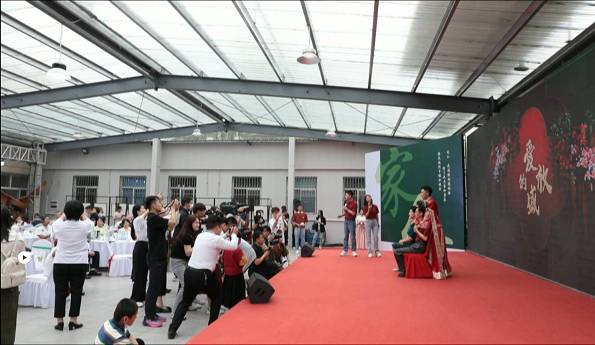
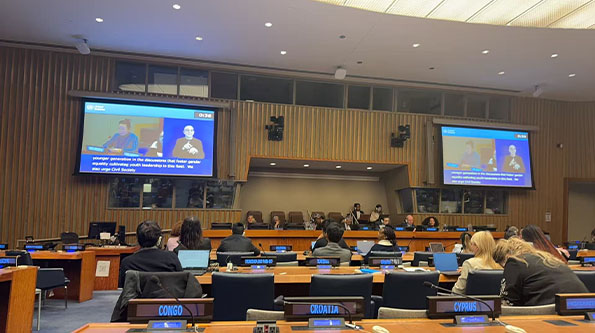
On March 18, 2025, from 15:00 to 18:00 (EST), the 15th Plenary Session of the 69th United Nations Commission on the Stat...
Mar 21, 2025 Read Details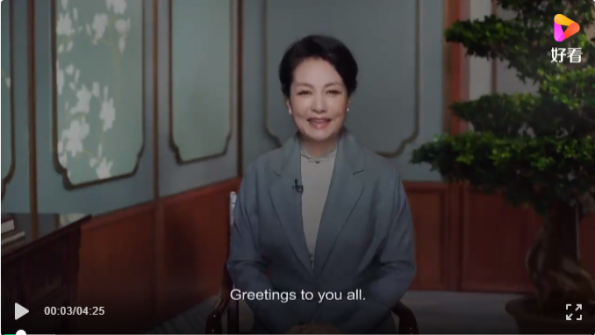
On June 7th, 2021, Madame Peng Liyuan, wife of President Xi Jinping, and Goodwill Ambassador of the WHO for tuberculosis...
Dec 03, 2020 Read Details